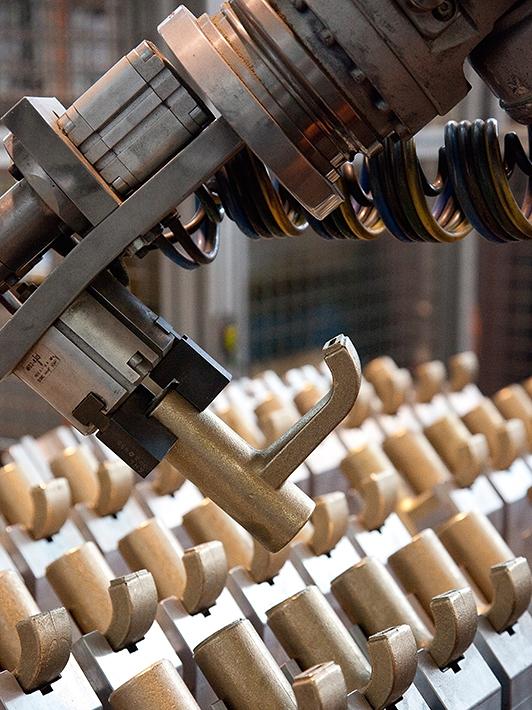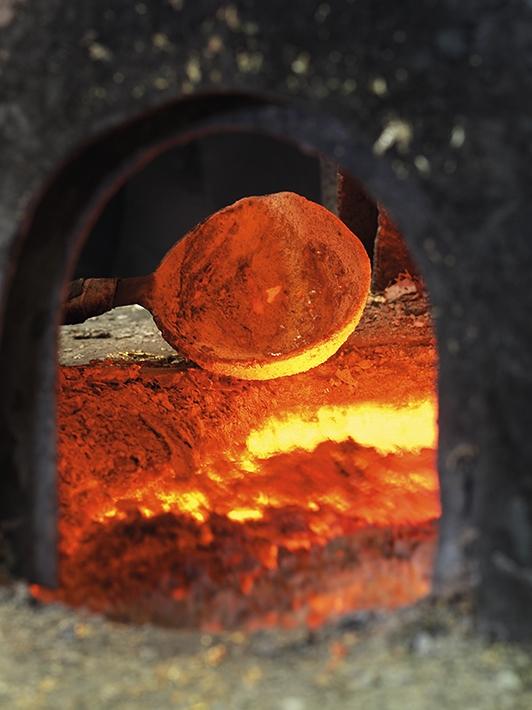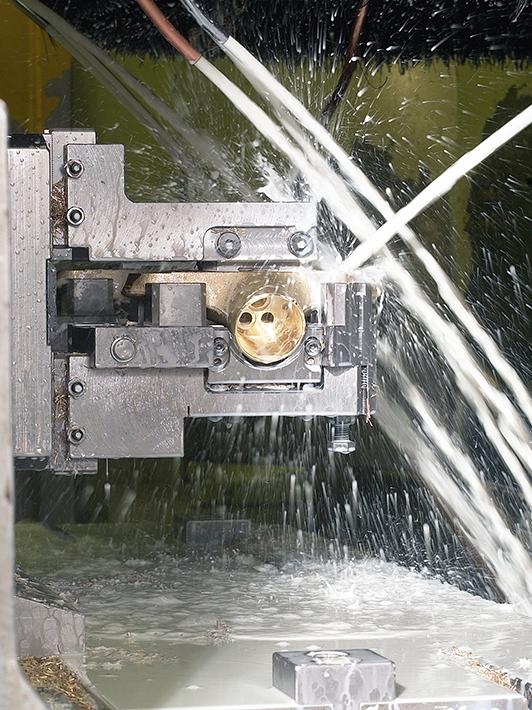Framsiktig och Hållbar Produktion
Alla GROHEs produktionsanläggningar runt om i världen arbetar för att skärpa standarder för miljövänligt management liksom för hälsa och säkerhet.

Miljövänlighet har många aspekter för ett internationellt företag som GROHE - energieffektiv produktion är en av dem. GROHE driver tre produktionsanläggningar i Tyskland, och tre utanför Europa, och är fast besluten att tillverka dess produkter så miljömässigt hållbara som möjligt samtidigt som ekonomiska aspekter tas i beaktning. Som en del av denna ansträngning förbättrar GROHE alla arbetssekvenser och produktionsprocesser kontinuerligt för att möta alla miljömässiga, hälso- och säkerhetskrav vid alla tillfällen.
Genom att vara en världsledande tillverkare av sanitetssystem agerar GROHE som en förebild för hela industrin, och bidrar med en proaktiv syn på ekologiska, ekonomiska och sociala utmaningar. Alla GROHEs produktionsanläggningar världen runt är föremål för centrallt utställda organisationella riktlinjer och procedurer i förhållande till miljövänligt management liksom hälsa och säkerhet. Lokala överrensstämmelser har hög prioritet och är veriferade genom regelbundna interna och externa MHS (miljö, hälso, säkerhet) audits. Alla centrala enheter och produktionsanläggningar i Europa har blivit certifierade med ISO 14001, den ledande internationella standarden för miljömässiga managementsystem, redan i 2003. Den thailändska fabriken i Klaeng följde tätt efter i 2004. Företagets kvalitet managementsystem har blivit certifierade med ISO 9001 sedan 1992. I november 2011, blev alla GROHE produktionsanläggingar i Tyskland, Portugal och Thailand certifierade med OHSAS 18001:2007, världens ledande standard för yrkessamma hälso- och säkerhetsmanagementsystem.

Pågående Miljömässiga Ansträngningar
On the manufacturing side, the environmental focus is on energy and resource efficiency, waste avoidance and high recycling rates, low water consumption and climate protection. Already back in 2007 GROHE started to compute its carbon footprint. This effort initially covered all production sites but was extended to the logistics processes in 2010; in 2011 GROHE started to calculate the carbon footprints of its worldwide distribution companies as well.
For many years the GROHE Group has successfully increased its recycling ratios. This is true, in particular, at the international manufacturing sites. Scrap produced in the faucet casting processes is almost completely reused or melted down and recycled internally. Almost all scrap, shavings, sprues and risers can be melted down and recycled into the process immediately. Plastic parts which occur as waste in the casting process are usually broken down into granules and fed back into the same machine.
The procurement units at GROHE place great importance on sustainability. Their efforts centre on the GROHE Supplier Code of Conduct as well as a variety of supplier rating and auditing schemes, backed up by compliance commitments to be signed by suppliers and service providers. These documents oblige suppliers to comply with GROHE standards on environmental protection as well as health and safety.
Energy and resource efficiency are important features of GROHE products not only in daily use but also at the manufacturing stage. New processes and technologies adopted throughout the company have led to substantial reductions in resource usage. Investments in ecology frequently deliver economic benefits, too. This is evident, for example, at the GROHE plant in Hemer where annual gas consumption has been cut by approximately 20 percent following the installation of heat recuperation systems as well as a new degreasing unit. At the same time, annual electricity consumption has also been reduced by approximately 20 percent through the installation of an overall compressor control system as well as through the modernisation of the factory hall lighting system.
Die casting remains an essential part of faucet production and the energy required to melt the metals is an important environmental consideration. GROHE has substantially lowered the energy intensity of this process through effective waste heat recuperation. GROHE has also implemented several programmes aimed at reducing the brass content of faucets; as a result, the weight of a single-lever wash basin mixer has been slashed by 30 percent.

Focus on clean water
Given that the GROHE universe revolves around water, stringent pollution control plays a highly important role at all company levels. Germany’s strict limits on water effluents and airborne pollutants are applied also at the international manufacturing sites. Modern and consistent monitoring technologies are used to rule out the risk of water pollution through cooling lubricants used in the manufacturing processes. At its Thai factory in Klaeng, the company has installed an aquatic plant-based water treatment facility which cleanses sewage water using micro-organisms populating the plants. The sewage cellar at the GROHE factory in Hemer has been comprehensively modernised as well. In addition, the company continues to undertake all measures required to minimise other environmental risks. All manufacturing sites have emergency plans in place and hold regular evacuation and fire drills. Employees are also trained on how to respond to the eventuality of a chemical spill.
Sustainable production at GROHE is underpinned by the company’s commitment to protecting the environment and safeguarding employees’ health and safety.